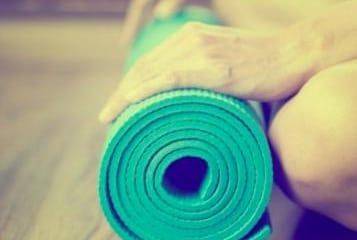
It is known that the menopause is a difficult period for the woman, both psychologically and physically. This is particularly evident from the changes in our metabolic profile once the menopause has passed and thus the decrease in estrogen secretion.
What changes in our bodies with menopause and how does this affect our health?
- Increased cardiovascular risk and the likelihood of developing atherosclerotic plaque
This, in practice, is usually shown by an increase in blood lipids, mainly cholesterol. Estrogen is known to protect women from cardiovascular risk, which is why women of reproductive age have a lower risk than men of the same age. Thus, after menopause, the risk for cardiovascular disease equalizes between the two sexes. - Increased visceral fat deposition
After menopause, women acquire the so-called "central type obesity", that is, the type that is more dangerous for health as it is related to fat deposition around the organs. - Disorder of carbohydrate metabolism
In other words, menopause is a period of high risk for type II diabetes.
The two or all three above contribute to the establishment of the so-called "metabolic syndrome", which is reinforced as a possibility by a sedentary lifestyle.
How can we deal with the changes?
All the above changes need a more specialized treatment, however they are completely manageable if you follow the following 4 steps!
Step 1: Careful and balanced diet
Needless to say, a nutrient-rich diet is essential at this stage.
- Of particular importance is calcium and vitamin D, so the consumption of 3 dairy products a day and of course exposure to the sun (for vitamin D production).
- It is equally important to reduce fat in the diet (so avoid fried foods, sweets, pastries and very fatty meats) but also the intake of salt and simple sugars (honey, sugar, juices, soft drinks, processed white foods such as bread).
- Finally, very important as in any other period of our life are vegetables and fish.
Step 2: Exercise!
Exercise is necessary during this period for many reasons: muscle and bone strengthening, greater endurance, treatment of possibly disturbed health indicators and, of course, psychological stimulation! Aim for 30-40 minutes of moderate-intensity walking 3 times a week and optionally strength training 2 times a week, according to official recommendations.

Step 3: Avoiding smoking and alcohol
Especially in relation to alcohol, and only if you already drink regularly, aim to gradually reduce it to 1 glass/day until you avoid it completely.
Step 4: Mental activity
Keep your mind alert through activities that give you corresponding stimuli and provide you with entertainment. Let's not forget that maintaining mental and mental balance is just as important as physical health!
If this period is still stressing you out, or if you want more personalized guidance, let's find ways together to make this period as painless as possible!
Article from Eutrophia-Nutrition workshop for children and adults

No Comments